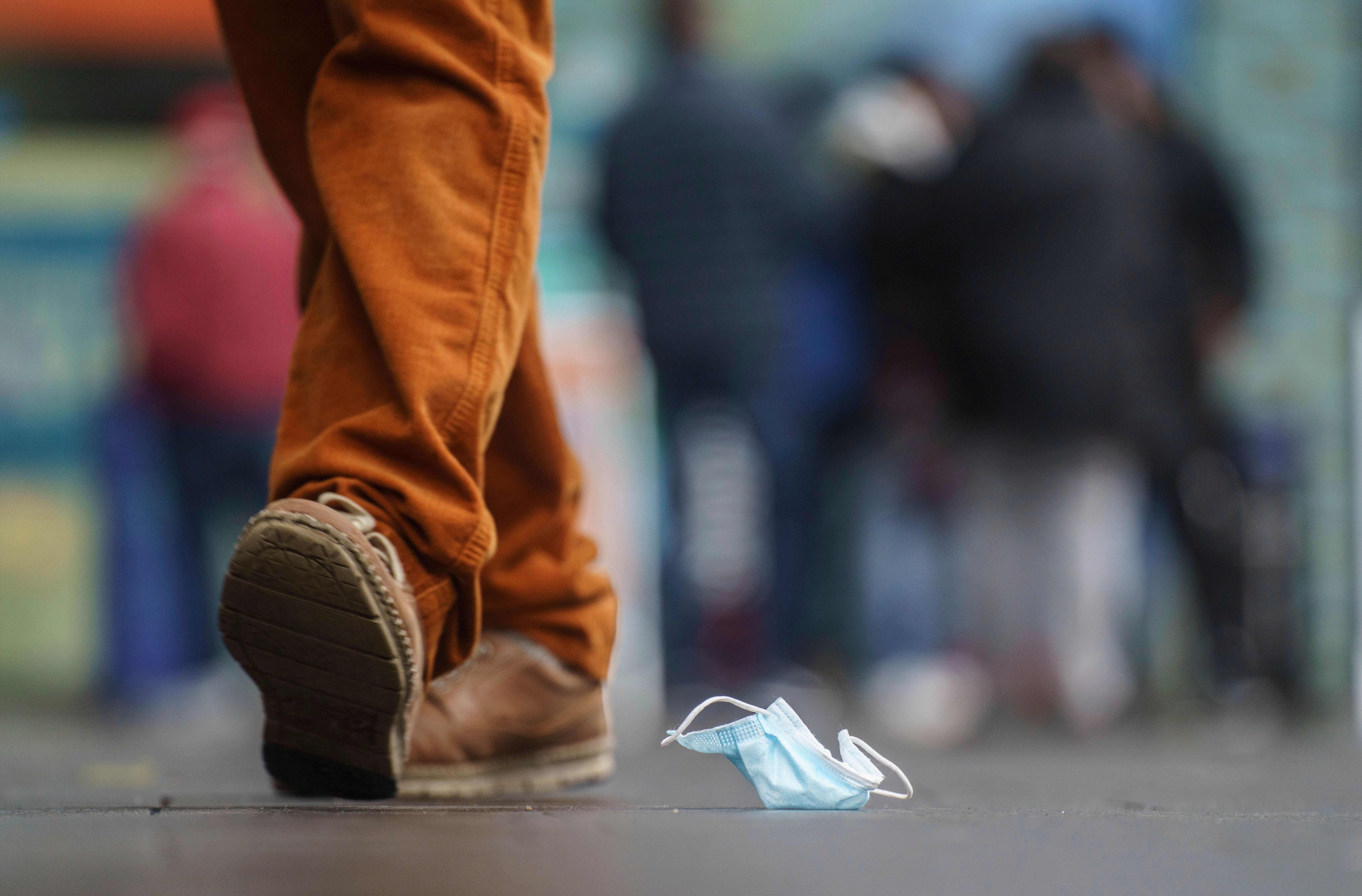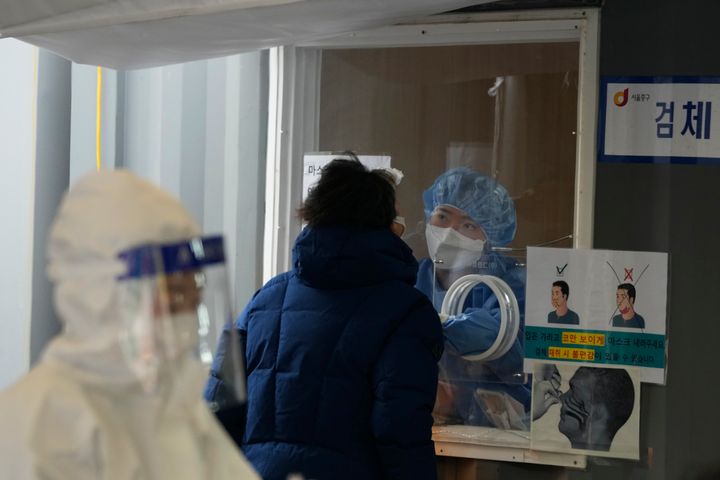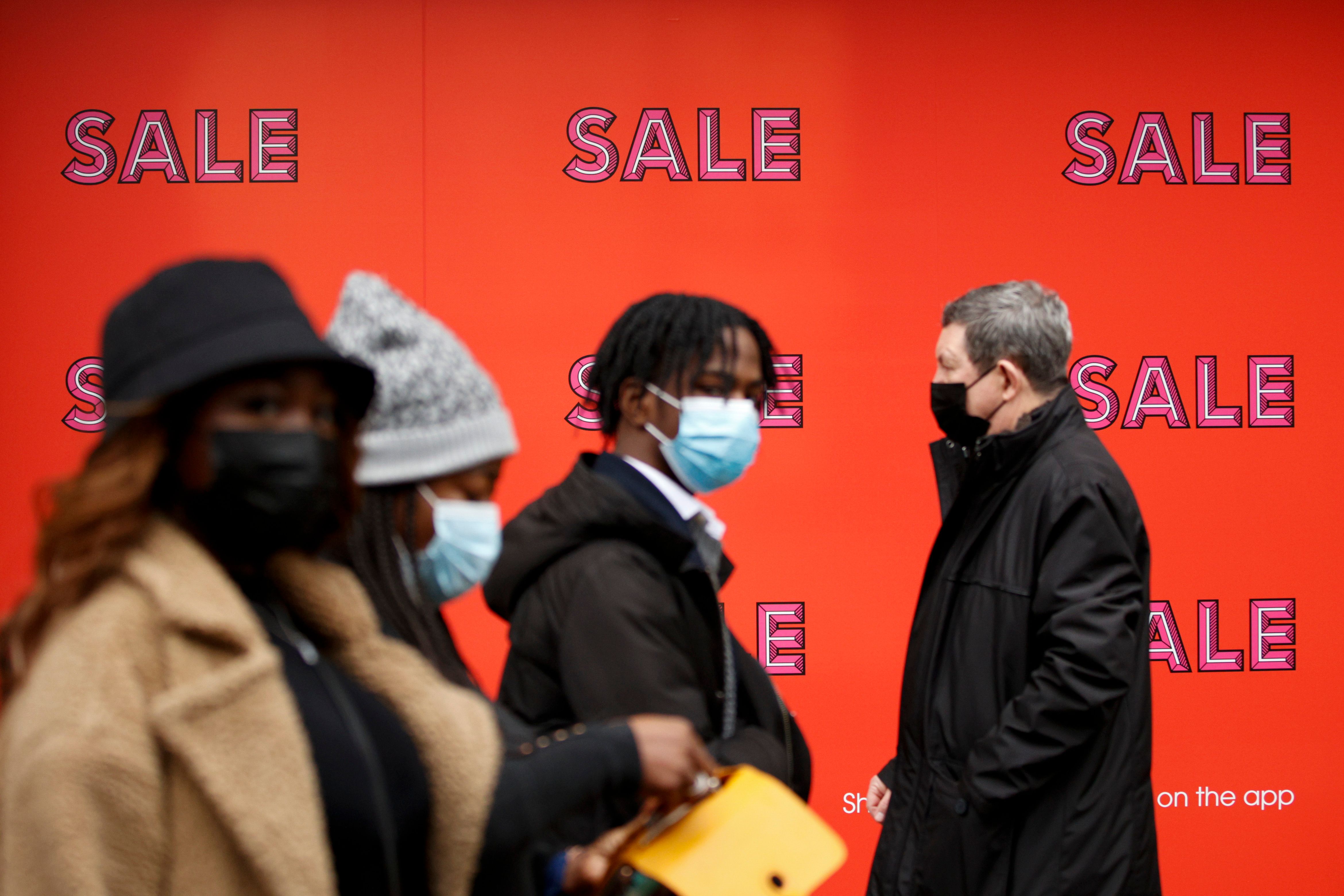
BRUSSELS (AP) — After struggling with the coronavirus for far too long, the world understands all too well Belgium’s word of the year, “knaldrang!” — the urge to party, the need to let loose. Yet as New Year celebrations approach, the omicron variant is casting more gloom.
Dire warnings abound, caseloads are rising alarmingly fast, air traffic is snarled and several countries are considering more restrictions to add to the patchwork of lockdowns and other measures already in place around Europe.
Advertisement
The top U.S. infectious-disease expert, Dr. Anthony Fauci, warned on Monday that with the rise of the highly contagious omicron, “it’s going to get worse before it gets better.”
“We don’t expect things are going to turn around in a few days to a week. It likely will take much longer than that, but that’s unpredictable,” he said on ABC.

Frank Rumpenhorst via AP
New York City’s sweeping mandate requiring nearly all businesses, from multinational corporations to corner grocery stores, to ban unvaccinated employees from the workplace took effect Monday amid a spike in infections.
In Denmark, infection numbers have gone up drastically in the past few days and set a one-day record of over 16,000 in the nation of 5.8 million.
Advertisement
Travelers around the world faced flight cancellations and delays because of staffing shortages linked to COVID-19. FlightAware, a flight-tracking website, counted more than 2,400 cancellations worldwide by Monday afternoon — 884 of them within, into or out of the U.S.
It is the unpredictability of the virus that is keeping governments second-guessing and picking widely varying strategies to beat back the pandemic.

Ahn Young-joon via AP
The French government and British Prime Minister Boris Johnson were assessing the latest data and the need to counter the record numbers of COVID-19 infections with more measures to keep people apart at a time when they so dearly want to be together.
But with indications that omicron might be a milder variant despite its extraordinary ability to infect people, politicians were caught in a bind over whether to spoil yet another party or play it safe to make sure health care systems don’t collapse.
Advertisement
France has recorded more than 100,000 infections in a single day for the first time in the pandemic, and COVID-19 hospitalizations have doubled over the past month. President Emmanuel Macron’s government scheduled emergency meetings Monday to discuss its next steps.
It is hoping that stepped-up vaccinations will be enough. The government is pushing a draft law that would require people to be vaccinated to enter all restaurants and many public venues, instead of the current health pass system that allows individuals to produce a negative test or proof of recovery if they are not vaccinated.

Ahn Young-joon via AP
This piecemeal, often hesitant approach is visible through much of Europe. In Poland, a nation of 38 million where the daily death toll now often tops 500, now-closed nightclubs will be allowed to reopen on New Year’s Eve, with the government unwilling to go against the many voters opposed to restrictions and mandatory vaccinations.
And despite the highest death toll from COVID-19 in Europe, Russia will ring in the new year with little if any restrictions. Many precautions will be lifted during the holiday period that runs for 10 days starting New Year’s Eve. Russia also will not impose any additional travel restrictions.
The official Rosstat statistical agency estimated that between April 2020 and October 2021, Russia had 537,000 virus-related deaths.
In Belgium, people faced their first real test with several new measures on Monday. Shopping in large groups was banned, and movie theaters and concert halls closed at a time when countless families are on vacation together. The calls to close theaters and arts centers came in for especially heavy criticism.
“We need it also for our mental health. It is the only way for people to live experiences, to tell stories. It is of paramount importance for us to be open in these complicated and complex times,” said Michael De Kok, artistic director of the Flemish Royal Theatre.
Some movie theaters stayed open in an act of civil disobedience.

David Cliff via AP
In Britain, there are similar creeping moves. Scotland planned to close its nightclubs Monday. Northern Ireland and Wales did so on Sunday, though they remain open in England. Johnson, who has resisted ordering new restrictions but hasn’t ruled them out, was expected to be briefed Monday on the latest data on the spread of omicron.
Even that staple of British holiday celebrations, the stream of English Premier League soccer games, is under threat. The league has called off 15 soccer over the past 2 1/2 weeks, and more could follow.
Advertisement
Britain’s daily infection numbers reached a new high of 122,186 on Friday, but there were no figures over the long Christmas weekend.
The Netherlands there has gone further than most other European countries, shutting down all nonessential stores, restaurants and bars and extending the school holidays in a partial new lockdown.
Colleen Barry contributed from Milan, Sylvia Hui from London, Geir Moulson from Berlin, Jari Tanner from Tallinn, Uliana Pavlova from Moscow and Vanessa Gera from Warsaw.
Related posts:
Views: 0
 RSS Feed
RSS Feed

















 December 28th, 2021
December 28th, 2021  Awake Goy
Awake Goy  Posted in
Posted in  Tags:
Tags: 
















